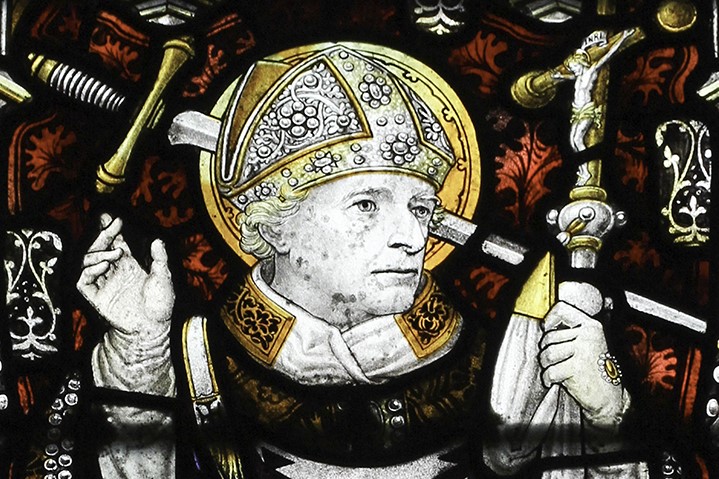
Saint Of The Day For December 29: Saint Thomas Becket, Bishop of Canterbury
From statesman to martyr for the love of Christ and the Church. Thomas, Chancellor of the English sovereign Henry II, he became bishop of Canterbury and opposed his friend the king to defend truth and freedom.
He is murdered in the city’s cathedral on 29 December 1170.
St Thomas: Statesman
Born in London in 1118 into a family of Norman origin, Thomas was initiated into an ecclesiastical career from an early age.
Educated at Merton Abbey, he later studied in France and at the University of Bologna and soon distinguished himself for his intellectual qualities.
In 1154, he became archdeacon of the diocese of Canterbury and the following year, the new king of England, Henry II, appointed him chancellor of the kingdom.
Thomas is the monarch’s most trusted man, lives a comfortable life and does not disdain the symbols and privileges of power.
However, the future saint does not fail to be generous towards the poor and shows an inner freedom even in front of the monarch of whom he becomes not only an advisor, but also a trusted friend.
Thomas, At the service of the Church
The turning point in Thomas Becket’s life came in 1161 when he accepted to become Archbishop of Canterbury.
This appointment is strongly advocated by King Henry II who never thought he would find a fierce opponent in what was once his closest collaborator.
Thomas is now servant to a lord far greater than the king of an earthly state.
The contrast sharpens when Henry II wants to restrict the freedom and independence of the Catholic Church in England through the Clarendon Constitutions.
Thomas is asked to sign the Charter to limit the prerogatives of the Church, but finds an insurmountable bulwark in the newly appointed Archbishop of Canterbury.
The imposition is decisively refused: ‘In the name of God Almighty, I will not set my seal’.
The erstwhile friend thus becomes, in the eyes of the king, a bitter enemy.
St Thomas: Martyr of faith and freedom
Thomas will know the bitterness of exile: after being a guest in a Cistercian monastery, he will have to repair to France.
Here he will remain six years away from his homeland.
When he returns to his Canterbury he finds the joyful welcome of the faithful, but an even deeper aversion from the Crown.
It is said that one day Henry II cried out for someone to rid him of that inconvenient bishop.
An exhortation taken literally by four knights who set out from London for Canterbury.
Thomas Becket was barbarously stabbed to death inside his cathedral. It is 29 December 1170.
It is said that when asked by the killers ‘Where is Thomas the traitor?’ he replied: ‘I am here, but I am not a traitor, but a bishop and priest of God’.
The commotion caused by this killing is immense, far beyond the borders of Great Britain, so much so that only three years later, on 21 February 1173, Pope Alexander III sanctions his martyrdom by raising him to the honour of the altars.
Read Also:
Saint Of The Day For December 28: Holy Innocents, Martyrs
Saint Of The Day For December 27: Saint John, Apostle And Evangelist
Saint Of The Day For December 26: Saint Stephen, First Martier
Women And The Art Of Speech: Economy Of Francesco’s Solidarity With The Women Of Iran
8 December 1856: Lyon, SMA (African Missions Society) Is Founded
D.R. Congo: Congolese Catholics Take To The Streets To Protest Increasing Violence
DR Congo, They Were Organising A Peace March: Two Women Kidnapped In South Kivu
